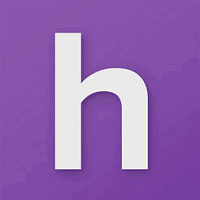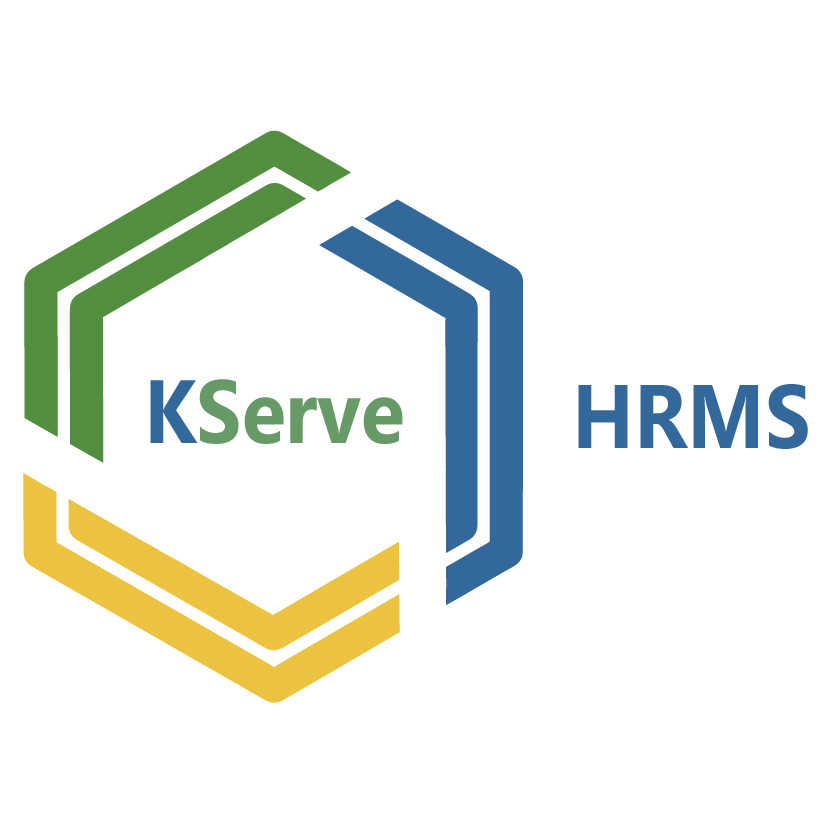Description

Homebase

KServeHRMS
Comprehensive Overview: Homebase vs KServeHRMS
Homebase
a) Primary Functions and Target Markets:
Homebase is primarily a workforce management and scheduling software designed for small businesses. It offers functionalities such as employee scheduling, time tracking, team communication, payroll integration, and labor compliance management. The software is specifically geared towards industries that involve shift work and hourly employees, including retail, food service, and hospitality.
b) Market Share and User Base:
Homebase has carved out a niche in the small and medium-sized business segment, particularly in the U.S. It enjoys popularity among businesses that require a straightforward and cost-effective solution for managing hourly wage workers. While exact market share percentages are not commonly disclosed, Homebase competes with other similar platforms like TimeClock Plus, Deputy, and TSheets within the segment, indicating a competitive market but with a solid user base drawn to its ease of use and affordability.
c) Key Differentiating Factors:
- User-centric Design: Homebase is known for its intuitive and user-friendly interface, making it accessible for business owners who may not be tech-savvy.
- Cost-effective: Homebase offers a free tier with essential features, which is attractive to small businesses operating on tight budgets.
- Integration: Seamless integration with popular payroll and point-of-sale systems such as Square, Gusto, and QuickBooks, enhancing its utility for small businesses.
- Mobile Accessibility: A robust mobile app that allows employees to manage their schedules and communicate with teams, which is crucial for industries with on-the-go staff.
KServeHRMS
a) Primary Functions and Target Markets:
KServeHRMS is a comprehensive Human Resource Management System (HRMS) that caters to larger enterprises, providing a wide array of HR functionalities such as recruitment, onboarding, payroll, performance management, employee self-service, and analytics. It targets mid to large-sized businesses across various industries that require an integrated and scalable HR solution.
b) Market Share and User Base:
KServeHRMS targets a more complex market than Homebase, appealing to larger organizations with diverse HR needs. It competes with other robust HRMS solutions like SAP SuccessFactors, Oracle HCM, and Workday. While it may not lead in market share compared to these giants, it serves a significant number of businesses that need customizable and comprehensive HR solutions, mostly in Asia and expanding globally.
c) Key Differentiating Factors:
- Comprehensive Solution: Offers a full-suite HR solution that covers every aspect of human resource management, suitable for businesses that need a holistic approach.
- Customization: Provides extensive customization options to tailor the software to the specific needs of different organizations and sectors.
- Analytics and Reporting: Strong focus on analytics and reporting, offering insights into workforce efficiency and HR processes, which is invaluable for strategic decision-making.
- ERP Integration: Often paired with enterprise resource planning (ERP) systems, it supports integration with broader business systems to streamline operations.
Comparison Summary
- Target Markets: Homebase serves small to medium-sized businesses focused on hourly wage management, while KServeHRMS caters to mid to large enterprises with more complex HR needs.
- Functionality: Homebase emphasizes scheduling and time-tracking, whereas KServeHRMS provides a full HR suite including payroll, recruitment, and performance evaluation.
- Pricing and Accessibility: Homebase offers a cost-effective entry with a free tier, whereas KServeHRMS is positioned for businesses that can invest in comprehensive, customizable solutions.
- Market Position: Homebase thrives in the small business segment, while KServeHRMS targets enterprises needing integrated HR solutions.
Both platforms serve distinct niches within the workforce management space, providing solutions tailored to different organizational sizes and complexities.
Contact Info

Year founded :
1986
Not Available
Not Available
United States
Not Available

Year founded :
2003
+91 44 4261 5064
Not Available
India
http://www.linkedin.com/company/kservehrms
Feature Similarity Breakdown: Homebase, KServeHRMS
To provide a detailed feature similarity breakdown for Homebase and KServeHRMS, let's explore the commonalities and differences in their offerings, as well as their user interface designs and unique features.
a) Core Features in Common
Both Homebase and KServeHRMS are designed to support HR management and employee-centric processes. Here are some core features they typically share:
-
Time and Attendance Management:
- Both platforms offer solutions to track employee hours, manage clock-ins and clock-outs, and calculate payroll hours.
-
Scheduling:
- They provide tools for creating and managing employee work schedules, ensuring adequate shift coverage and allowing employees to view or swap shifts.
-
Employee Management:
- They offer features for storing employee information, tracking performance metrics, and managing employee lifecycle events such as onboarding and offboarding.
-
Payroll Integration:
- Both systems can integrate with payroll solutions to streamline the payment process, reducing manual errors and administrative burden.
-
Communication Tools:
- They include built-in messaging systems or notification functionalities to facilitate communication between employers and employees.
b) User Interface Comparison
While the exact user interface can vary based on updates or specific installations, general observations about their interfaces include:
-
Homebase:
- Known for its user-friendly and intuitive design tailored primarily to small and medium-sized businesses. Its interface is often described as straightforward, with a focus on ease of navigation.
- The dashboard typically presents key information at a glance, with icons and color-coding for quick understanding.
- Mobile-friendly: Homebase places a strong emphasis on mobile usability, offering apps that are functional and easy to navigate.
-
KServeHRMS:
- KServeHRMS also emphasizes ease of use, though it is often tailored to accommodate larger businesses or those with more complex HR needs.
- The interface may offer more customization options to adapt to various business processes.
- It aims to provide a comprehensive overview with detailed modules, which can sometimes lead to a steeper learning curve for first-time users.
- Mobile access is supported and typically offers robust functionalities suitable for on-the-go management.
c) Unique Features
-
Homebase:
- Integration with Point of Sale (POS) Systems: This feature is particularly beneficial for retail and hospitality industries, allowing seamless data transfer between sales and HR/time-tracking systems.
- Job Posting and Applicant Tracking: Simplifies hiring by integrating job posting with platforms like Indeed and managing applicants directly from the dashboard.
-
KServeHRMS:
- Advanced HR Analytics: Offers detailed insights and reporting capabilities that help businesses analyze workforce patterns, drive performance and make informed decisions.
- Compliance Management: More robust tools for tracking and managing compliance with labor laws and industry regulations, which is crucial for larger businesses operating in multiple regions.
- Custom Workflow Automation: Allows for the design and implementation of customized HR workflows, enhancing process efficiency and reducing manual intervention.
In summary, while Homebase and KServeHRMS share foundational HR functionalities, they cater to somewhat different market segments and offer unique features that reflect their focus areas. Homebase leans heavily towards ease of use for smaller businesses, while KServeHRMS offers more comprehensive solutions and customization for larger or more complex organizations.
Features

Team Communication
Employee Management
Time Tracking and Timesheets
Payroll Management
Easy Employee Scheduling

Talent Management
Reporting and Analytics
Employee Management
Payroll and Compensation
Learning and Development
Best Fit Use Cases: Homebase, KServeHRMS
Homebase and KServeHRMS are both software solutions designed to address specific business needs, particularly in the realms of workforce management and human resource management. Here’s an overview of the best fit use cases for each:
Homebase
a) For what types of businesses or projects is Homebase the best choice?
Homebase is particularly well-suited for small to medium-sized businesses that need a straightforward yet comprehensive tool for managing employee scheduling, time tracking, and team communication.
-
Retail Stores and Restaurants: These businesses often have complex scheduling needs, with varying shifts and part-time employees. Homebase makes it easy to create and share schedules, track hours worked, and manage labor costs effectively.
-
Hospitality Industry: Hotels, cafes, and event management companies benefit from Homebase by managing irregular schedules, handling last-minute changes, and ensuring adequate staffing levels.
-
Healthcare Clinics: Clinics that require efficient shift management for nurses, doctors, and administrative staff find Homebase useful to handle rotations and avoid scheduling conflicts.
-
Service-Based Businesses: Homebase suits salons, fitness centers, repair services, and cleaning services where tracking employee hours and managing variable schedules are crucial.
KServeHRMS
b) In what scenarios would KServeHRMS be the preferred option?
KServeHRMS is designed for organizations looking for a robust human resource management system that goes beyond just scheduling and timekeeping to include comprehensive HR functions.
-
Medium to Large Enterprises: Companies with a larger workforce and more complex HR requirements benefit from KServeHRMS’s range of features, including payroll management, performance appraisals, and employee self-service portals.
-
Highly Regulated Industries: Businesses in industries like finance, technology, or pharmaceuticals that need to maintain strict compliance with employment laws benefit from KServeHRMS’s capabilities in managing employee documentation and ensuring regulatory compliance.
-
Educational Institutions: Universities and schools can use KServeHRMS to manage a diverse range of staff from different departments, streamline payroll processes, and automate leave management.
-
Manufacturing Companies: Companies with multiple shifts and a diverse workforce in different locations find KServeHRMS useful for coordinating HR functions across various sites effectively.
How do these products cater to different industry verticals or company sizes?
-
Industry Vertical Adaptability:
- Homebase is highly adaptable for industries with variable hours, shift work, and hourly employees. Its primary focus on simplified scheduling and communication makes it versatile for retail, hospitality, and service businesses.
- KServeHRMS extends its functionality to cover multiple HR needs, making it suitable for industries that require detailed employee management and compliance features. It caters to sectors with complex hierarchical structures and specialized HR needs.
-
Company Size Consideration:
- Homebase is ideal for small to medium-sized businesses that need essential scheduling and time tracking features without the overhead of a complex HR suite.
- KServeHRMS targets larger businesses with comprehensive HR requirements, supporting detailed employee databases, extensive reporting, and system integrations that facilitate large-scale HR management.
Overall, each product is tailored to meet the needs of different types of organizations by focusing on their specific operational challenges and scale requirements.
Pricing

Pricing Not Available

Pricing Not Available
Metrics History
Metrics History
Comparing undefined across companies
Conclusion & Final Verdict: Homebase vs KServeHRMS
When analyzing and comparing Homebase and KServeHRMS, it's essential to evaluate them based on their features, pricing, user experience, customer support, and scalability. Here's a detailed breakdown to aid in reaching a conclusion:
a) Considering all factors, which product offers the best overall value?
Best Overall Value:
- Homebase generally offers a more comprehensive suite of tools for small to medium-sized businesses, particularly in the retail and hospitality industries. It combines scheduling, time tracking, team communication, and hiring in one platform. It's known for its user-friendly interface and cost-effectiveness for smaller businesses.
- KServeHRMS, on the other hand, is tailored more for comprehensive HR management and might be better suited for larger organizations or those with more complex HR needs. This platform excels in areas like payroll management, employee self-service, and compliance tracking.
Choosing the best overall value depends on the business size and specific needs:
- For small to medium-sized businesses focused on scheduling and team management, Homebase provides excellent value.
- For larger organizations needing detailed HR functionalities, KServeHRMS may offer better long-term value.
b) Pros and Cons of choosing each of these products:
Homebase:
- Pros:
- User-friendly interface, making it easy to onboard employees.
- Strong features for scheduling, time tracking, and team communication.
- Cost-effective, especially for small businesses with its freemium model.
- Excellent mobile app support for on-the-go management.
- Cons:
- Limited HR capabilities compared to dedicated HR solutions.
- Might not scale well for very large organizations with complex HR needs.
- Fewer customizable features for specific industry requirements.
KServeHRMS:
- Pros:
- Comprehensive HR management suite with payroll, compliance, and employee self-service functionalities.
- Suitable for larger organizations with complex HR requirements.
- Offers extensive customization to fit specific organizational needs.
- Strong reporting and analytics capabilities.
- Cons:
- More complex setup and potentially steeper learning curve than simpler platforms.
- Higher cost, which might not be justified for smaller organizations.
- Can be overwhelming for managers primarily needing scheduling or basic HR tasks.
c) Specific recommendations for users trying to decide between Homebase vs KServeHRMS
-
Identify Core Needs:
- If your primary need centers around employee scheduling, time tracking, and communication — especially in service industries — Homebase is likely more suitable.
- If you require a comprehensive HR suite that includes payroll, performance management, and compliance tools, KServeHRMS should be considered.
-
Consider Business Size and Growth:
- For small to medium-sized businesses, opting for a user-friendly and cost-effective solution like Homebase might provide immediate value and ease of use.
- Larger organizations or rapidly growing companies should evaluate KServeHRMS for its scalability and wide array of HR functionalities.
-
Evaluate Budget Constraints:
- Assess your budget for HR management software. Homebase tends to be more budget-friendly for smaller companies, whereas KServeHRMS could be a worthwhile investment for those with a larger budget seeking comprehensive functionality.
-
Trial and Feedback:
- Consider utilizing free trials or demos offered by both platforms to gauge which interface and features match your operational needs.
- Gather feedback from your HR and management teams about their experience with each platform during the trial period.
Final Verdict: Both Homebase and KServeHRMS cater to different market segments with individual strengths. The choice should align with the specific operational needs, size, and budget of your business.
Add to compare
Add similar companies



